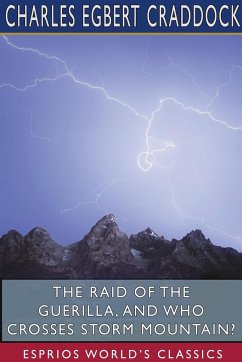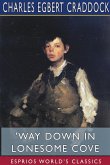Mary Noailles Murfree (1850-1922) was an American fiction writer of novels and short stories who wrote under the pen name Charles Egbert Craddock. Being lame from childhood, she turned to reading the novels of Walter Scott and George Eliot. In the 1870's she had begun writing stories for Appleton's Journal under the penname of "Charles Egbert Craddock" and by 1878 she was contributing to the Atlantic Monthly. She is considered by many to be Appalachia's first significant female writer and her work a necessity for the study of Appalachian literature, although a number of characters in her work reinforce negative stereotypes about the region. She has been favorably compared to Bret Harte and Sarah Orne Jewett, creating post-Civil War American local-color literature.
Bitte wählen Sie Ihr Anliegen aus.
Rechnungen
Retourenschein anfordern
Bestellstatus
Storno









